
Rice's Danielle King named 2023 Association for Psychological Science Rising Star
Danielle King, an assistant professor of psychological sciences at Rice University, has been named a 2023 APS Rising Star by the Association for Psychological Science.

Rice's Danielle King named 2023 Association for Psychological Science Rising Star
Danielle King, an assistant professor of psychological sciences at Rice University, has been named a 2023 APS Rising Star by the Association for Psychological Science.

Kory Evans wins NSF CAREER Award
Kory Evans, an assistant professor of biosciences at Rice University, has won a prestigious National Science Foundation CAREER Award to study shape change in the skull of spiny ray-fin fishes across their evolutionary history.

Researchers can ‘see’ crystals perform their dance moves
Rice University researchers already knew the atoms in perovskites react favorably to light. Now they’ve seen precisely how the atoms move when the 2D materials are excited with light. Their study this week in Nature Physics details the first direct measurement of structural dynamics under light-induced excitation in 2D perovskites.

Volcanolike rupture could have caused magnetar slowdown
In October 2020, a highly magnetic neutron star called SGR 1935+2154 abruptly began spinning more slowly. In a Nature Astronomy study this month, Rice astrophysicist Matthew Baring and colleagues showed the magnetar’s rotational slowdown could have been caused by a volcanolike rupture near its magnetic pole.

Rice scientists’ discovery could lead to new Alzheimer’s therapies
A new approach to the study of amyloid-beta, a peptide associated with Alzheimer’s disease, has led Rice University scientists to findings that could have a significant impact on the understanding and potential treatment of the disease.

Naomi Halas named University Professor
Rice University has promoted nanotechnology pioneer Naomi Halas to its highest academic rank, University Professor. Halas, a 33-year member of Rice’s faculty, becomes only the 10th person and second woman to earn the title in Rice’s 111-year history.

Can you judge trustworthiness based on looks? Rice research says no
How many times have you heard someone say, “He looks trustworthy”? As it turns out, you can’t trust appearances..

Andrew Grams to lead Shepherd School Symphony Orchestra as major ensembles kick off spring semester
Andrew Grams, former music director of Elgin Symphony Orchestra, will lead the Shepherd School Symphony Orchestra as the school’s major orchestra ensembles kick off their spring semester performances Feb. 3 and 4. Both performances are free to the public and will take place at 7:30 p.m. in Alice Pratt Brown Hall’s Stude Concert Hall on the campus of Rice University.
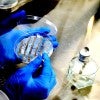
New enzyme could mean better drugs
Biomolecular engineers at Rice University identified a new enzyme that catalyzes the Nobel Prize-winning Diels-Alder reaction.

Rice’s Jamie Padgett wins Texas academy’s O’Donnell Award
Rice University structural engineer Jamie Padgett has received the 2023 Edith and Peter O’Donnell Award in Engineering from The Academy of Medicine, Engineering and Science of Texas.

Research on televised opera, slave voyages honored with National Endowment for the Humanities grants
A Rice University musicologist and history professor are among the recipients of 2023 grants from the National Endowment for the Humanities (NEH) for their research projects on televised opera and tracking historical slave trading voyages.
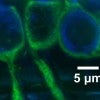
Inner ear has a need for speed
Rice bioengineers and applied physicists, together with and colleagues at the University of Chicago and the University of Illinois Chicago, have unlocked the mechanism of the fastest synapses in the human body. A previously hidden mechanism in the inner ear that helps mammals balance via the fastest-known signal in the brain, and researchers from Rice University, the University of Chicago and the University of Illinois Chicago have modeled a hidden mechanism in the inner ear that helps mammals balance via the fastest-known signal in the brain.
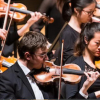
Some of the most recognizable conductors in the classical music world will take the stage at Rice University’s Shepherd School of Music over the next 18 months.
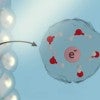
Nanoparticles make it easier to turn light into solvated electrons
Chemists from Rice, UT Austin and Stanford have uncovered the long-sought mechanism of a light-driven process that creates solvated electrons, inherently clean chemical reactants that are attractive for green chemistry.
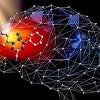
New fluorescent dye can light up the brain
Rice chemist Han Xiao and Stanford researcher Zhen Cheng have developed a tool for noninvasive brain imaging that can help illuminate hard-to-access structures and processes. Their small-molecule dye is the first of its kind that can cross the blood-brain barrier, allowing researchers to differentiate between healthy brain tissue and a glioblastoma tumor in mice.